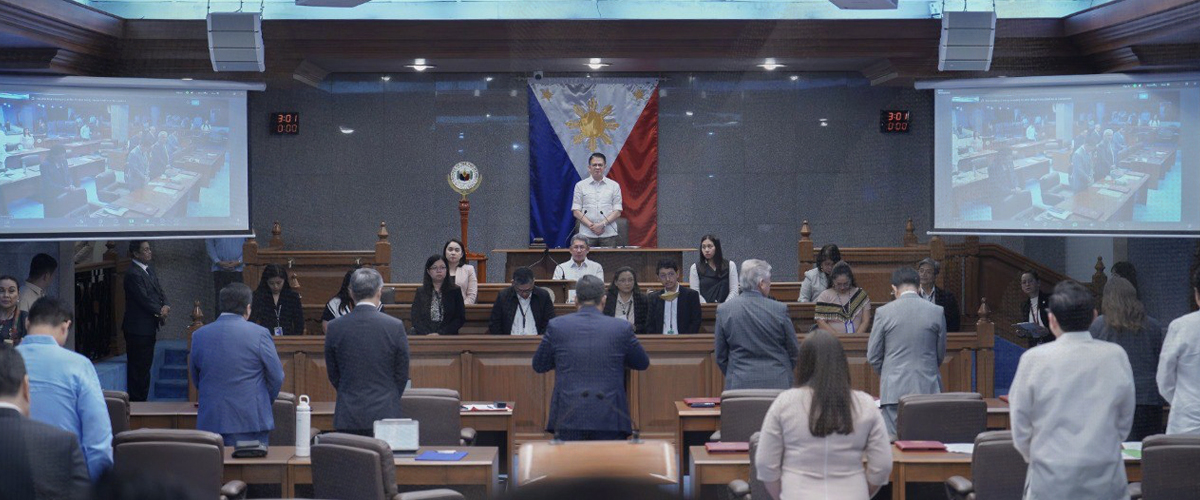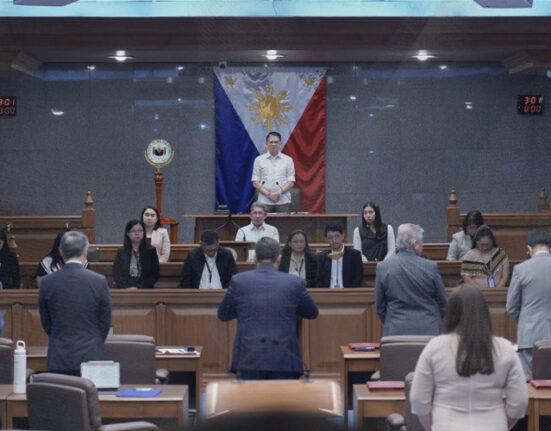THE Senate voted 19-4-1 to archive the impeachment complaint against Vice President Sara Duterte, following a Supreme Court ruling that declared the case unconstitutional.
Some are saying that means the impeachment case is dead.
Others argue that “archived” doesn’t mean “buried.” If the Senate wants to bring it back, and the numbers are there, they can.
But in all these confusions, what does that truly mean for the case against VP Duterte? Is it really the end of the line— or just a pause button?
Let’s break it down.
Archived, dismissed, tabled — what’s the difference, and why does it matter?
On August 6, the Senate voted to archive the impeachment complaint against Vice President Sara Duterte, following the Supreme Court’s decision to halt the trial.
But it didn’t start there.
Senator Rodante Marcoleta first moved to dismiss the case completely, saying the SC had already ruled the impeachment proceedings unconstitutional.
Then, Senator Tito Sotto stepped in. He suggested they table the case instead — basically, pause the process and wait for the SC’s final decision.
Before the Senate could vote on that, Marcoleta — after suggestions from fellow senators — changed his motion to archive the case instead.
And that’s where it landed: archived, not dismissed, not tabled.
But what is the difference between the three?
While the terms may sound interchangeable, in the context of legislative procedures, each has distinct implications.
Dismissing an impeachment complaint means putting a definitive end to it — the case is closed and cannot be reopened unless a brand-new complaint is filed.
Tabling, on the other hand, sets the matter aside temporarily. It puts the process on pause, allowing the Senate to return to it at a later time, especially if new developments arise.
Archiving, which is what ultimately happened to the impeachment complaint against Vice President Sara Duterte, lands somewhere in between.
By archiving the case, the Senate neither moved forward with deliberations nor fully shut it down.
This action effectively shelves the complaint, with the option to revive it if circumstances change — for example, if the Supreme Court reverses its decision. In doing so, the Senate acknowledged the high court’s intervention without permanently disposing of the complaint.’
Here’s the summary:
| Term | Meaning | Can the case return? |
| Dismissed | The case is permanently thrown out — no chance of revival. | No. |
| Tabled | The case is paused temporarily — can resume later if the Senate chooses. | Yes. |
| Archived | The case is set aside following the Supreme Court’s ruling — but can be pulled back if the Senate majority wants it. | Technically, but it depends on the Senate majority. |
In the end, the Senate chose to archive the impeachment complaint — not dismiss or table it.
While this move effectively halts the process for now, it leaves a narrow path open for possible revival. Unlike dismissal, archiving does not permanently close the case, but any future action would depend on the will of the Senate majority.
Who wanted it shelved — and who didn’t?
In the end, the Senate voted 19-4, with one abstention, to archive the impeachment complaint against Vice President Sara Duterte.
This effectively stopped the trial from proceeding, aligning the chamber’s action with the Supreme Court’s earlier ruling that declared the process unconstitutional.
Among those who voted in favor of archiving were:
- Senate President Francis “Chiz” Escudero
- Majority Leader Joel Villanueva
- Senator Alan Peter Cayetano.
- Senators Bong Go
- Ronald “Bato” dela Rosa
- Imee Marcos
- Robin Padilla
- Camille Villar
- Mark Villar
- Miguel Zubiri
According to Escudero, their decision to archive is in line with the SC ruling.
“Let history record that in this moment, we chose the Constitution, we chose the rule of law,” he said.
On the other hand, Zubiri views the impeachment case as not dead, just paused.
“That will never stop us from being able to pull out the document from the archives,” he said.
In contrast, four senators voted against the motions. These includes:
- Senate Minority Leader Vicente Sotto III
- Risa Hontiveros
- Kiko Pangilinan
- Bam Aquino
They contended that the Senate should hold off on any action until the Supreme Court rules on the pending motions for reconsideration.
“How can the Senate archive something that is not before it?” argued Sotto.
Meanwhile, Senator Panfilo Lacson chose to abstain, pointing out that the House of Representatives—through the Solicitor General—had filed a motion for reconsideration before the Supreme Court.
This, he explained, rendered the July 25 ruling non-final and still subject to judicial review.
How useful was this post?
Click on a star to rate it!
Average rating 5 / 5. Vote count: 2
No votes so far! Be the first to rate this post.
We are sorry that this post was not useful for you!
Let us improve this post!
Tell us how we can improve this post?





